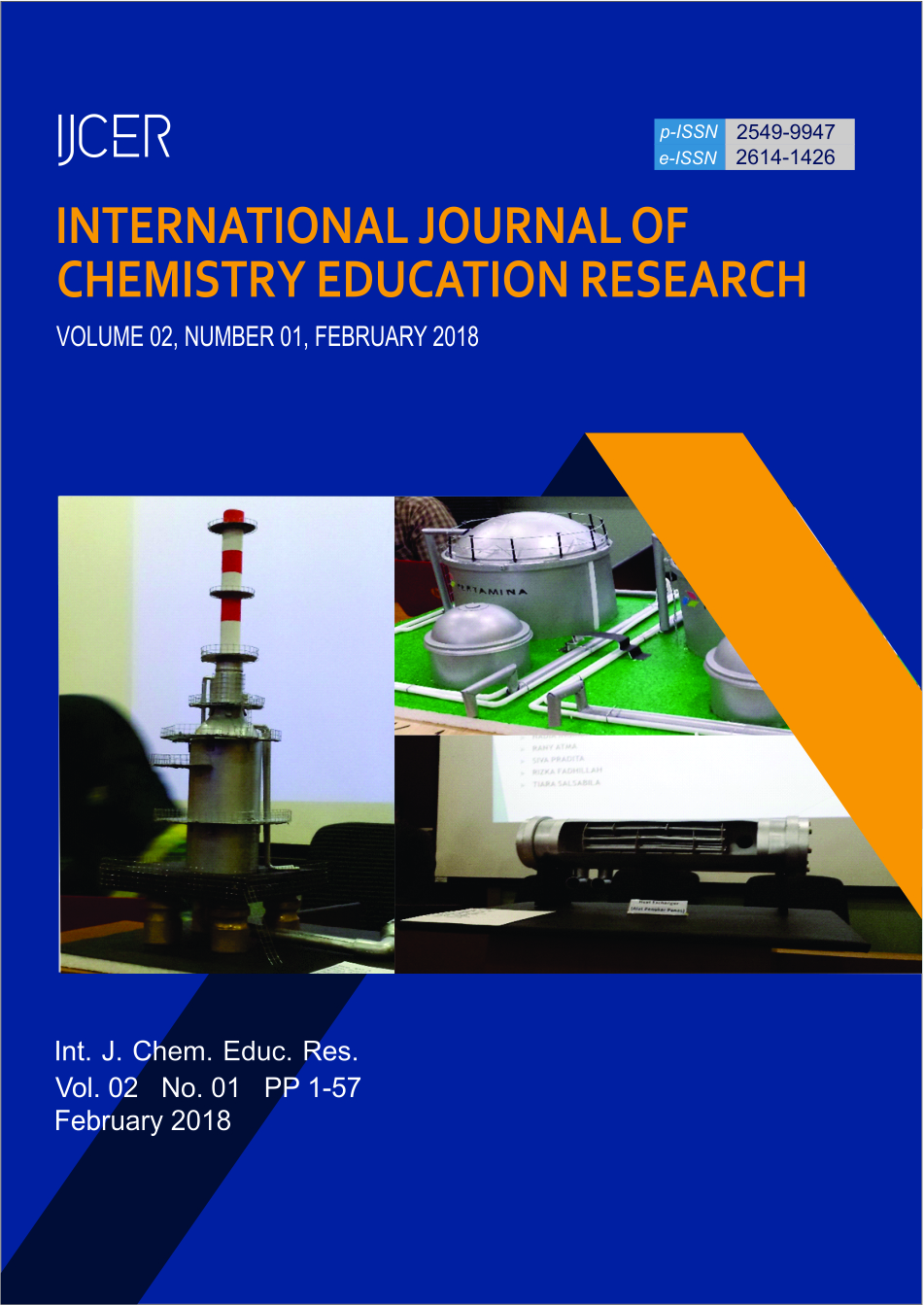Main Article Content
Abstract
ABSTRACT: Active Learning Method which requires students to take an active role in the process of learning in the classroom has been applied in Department of Chemical Engineering, Faculty of Industrial Technology, Islamic University of Indonesia for Unit Operations II subject in the Even Semester of Academic Year 2015/2016. The purpose of implementation of the learning method is to assist students in achieving competencies associated with the Unit Operations II subject and to help in creating a conducive academic atmosphere so as to contribute to improving the quality of teaching and learning in the study environment. The implementation of this learning method synergized with the face-to-face method is quite successful. This is indicated by an increase in the students' final score of
B from the baseline by 44% to 80%. This achievement exceeds the targeted percentage of 60%.
Keywords: active learning method, face to face method, process of learning, conducive academic atmosphere, unit operations II
Received: 6 February 2018, Revised: 15 February 2018, Accepted: 25 February 2018
Article Details
Author retain copyright and grant the journal right of first publication with the simultaneously licenced under A Creative Commons Attribution (CC-By-SA) 4.0 License that allows others to share the work with an acknowledgment of the worsk's authorship and initial publication in this journal.
References
- Academic Development Board UII, Panduan Hibah Pengajaran Reguler Semester Genap 2015/2016 (Universitas Islam Indonesia, Yogyakarta, 201 6).
- M. M. Pinheiro and D. Simões, Procedia Social and Behavioral Science, 64, 392-401 (2012).
- O. Derevenskaia, Procedia Social and Behavioral Science, 131 , 101 -104 (2014).
- N. Ogawa and A. Shimizu, Procedia Computer Science, 60, 1186-1194 (2015).
- C. Maybee, T. Doan and M. Flierl, J. Acad. Libariansh. 42, 705-711 (2015).
- K. Yajma, Y. Hayakawa, Y. Kashiwaba, A. Takahshi and S. Oiguchi, Procedia Computer Science, 96, 1489-1496 (2016).
- A. Gajda, R. A. Beghetto and M. Karwowski, Think. Skills Creat. 24, 250-267 (2017).
- B. Walters, J. Potetz and H. N. Fedesco, Clin. Sim. Nurs. 13, 609-615 (2017).
- S. Kresta and I. Ayranci, Educ. Chem. Eng. 22, 14-19 (2018).
- J. S. Twyman and W. L. Heward, Int. J. Educ. Res. 87, 78-90 (2018).
- K. Schenke, Learn. Individ. Differ. 62, 36-48 (2018).
- C. C. Bonwell and J. A. Eison, Active Learning: Creating Excitement in the Classroom (ASHEERIC Higher Education Report, Washington D. C., 1991).
- C. C. Bonwell, Active Learning: Creating Excitement in the Classroom (Active Learning Workshop, Colorado, 2000).
- D. Bell and J. Kahrhoff, Active Learning Handbook (Webster University, Missouri, 2006).
- J. Tweed, the Differences between Active and Passive Learning,
- http://www.mycoracle.com/news/opinions/differences-between-active-and-passive-learning, accessed on 27 January 2016.
References
Academic Development Board UII, Panduan Hibah Pengajaran Reguler Semester Genap 2015/2016 (Universitas Islam Indonesia, Yogyakarta, 201 6).
M. M. Pinheiro and D. Simões, Procedia Social and Behavioral Science, 64, 392-401 (2012).
O. Derevenskaia, Procedia Social and Behavioral Science, 131 , 101 -104 (2014).
N. Ogawa and A. Shimizu, Procedia Computer Science, 60, 1186-1194 (2015).
C. Maybee, T. Doan and M. Flierl, J. Acad. Libariansh. 42, 705-711 (2015).
K. Yajma, Y. Hayakawa, Y. Kashiwaba, A. Takahshi and S. Oiguchi, Procedia Computer Science, 96, 1489-1496 (2016).
A. Gajda, R. A. Beghetto and M. Karwowski, Think. Skills Creat. 24, 250-267 (2017).
B. Walters, J. Potetz and H. N. Fedesco, Clin. Sim. Nurs. 13, 609-615 (2017).
S. Kresta and I. Ayranci, Educ. Chem. Eng. 22, 14-19 (2018).
J. S. Twyman and W. L. Heward, Int. J. Educ. Res. 87, 78-90 (2018).
K. Schenke, Learn. Individ. Differ. 62, 36-48 (2018).
C. C. Bonwell and J. A. Eison, Active Learning: Creating Excitement in the Classroom (ASHEERIC Higher Education Report, Washington D. C., 1991).
C. C. Bonwell, Active Learning: Creating Excitement in the Classroom (Active Learning Workshop, Colorado, 2000).
D. Bell and J. Kahrhoff, Active Learning Handbook (Webster University, Missouri, 2006).
J. Tweed, the Differences between Active and Passive Learning,
http://www.mycoracle.com/news/opinions/differences-between-active-and-passive-learning, accessed on 27 January 2016.




